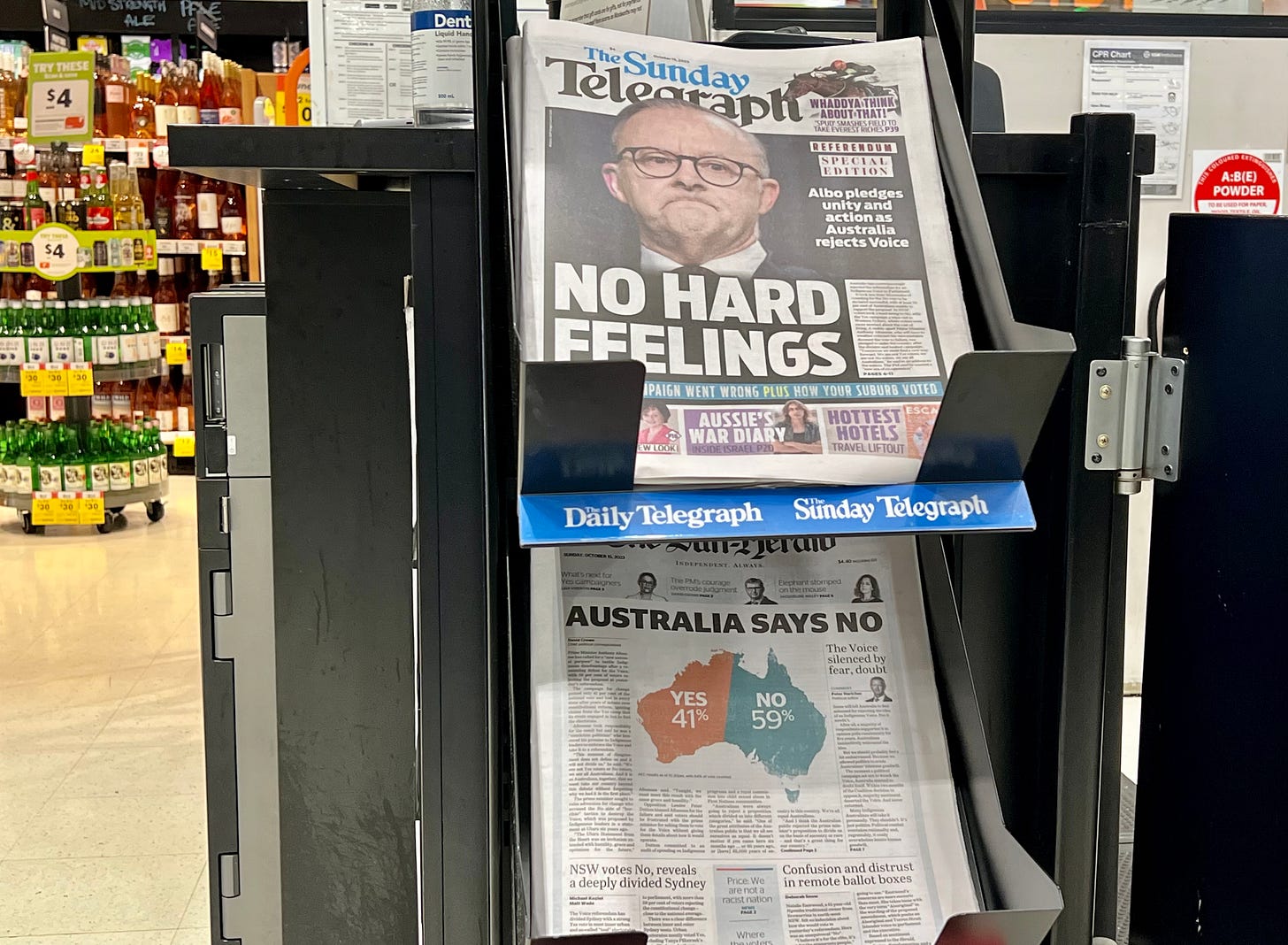How the pollsters got it right on the Voice
Welcome to Tuesdata, our weekly analysis for Unmade’s paying members.
Below, we examine how the factors that led the Yes campaign to falter in the months leading up to its defeat in the Voice to Parliament referendum.
Further down, the Unmade Index slides for a second day.
A poor campaign strategy made Voice defeat inevitable, but the pollsters got the trend consistently correct
Seja Al Zaidi writes:
On Saturday, a majority of Australians rejected the Albanese government’s proposal for an Indigenous and Torres Strait Islander Voice to Parliament. The debate consumed headlines for the majority of the year, fuelled by a lack of bipartisan support with the Liberal Party campaigning against the proposed constitutional change.
The numbers reveal a story of Australians increasingly sceptical about the Yes camp’s inability to articulate the tangible benefits of systemic reform, while voters were primarily consumed by ‘bread and butter’ economic concerns.
However, the pollsters - often commissioned by news organisations - will be able to point out that they correctly forecast the outcome. Unlike Scott Morrison’s shock Coalition victory in 2019, the polling got the result correct.
The Guardian Australia compiled a data tracker following predictions from 11 different polling companies over the last 12 months. All of the polling trends showed the result trending towards the eventual 59% no vote and 41% yes vote.




